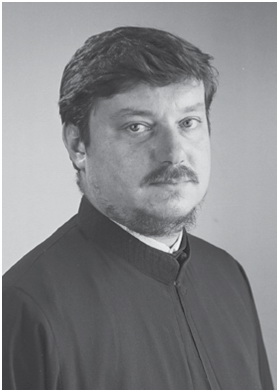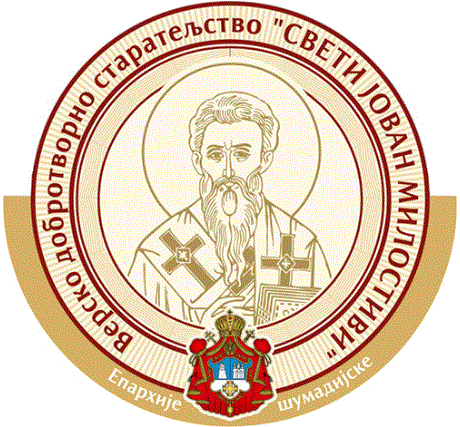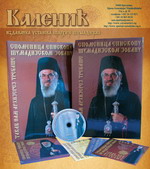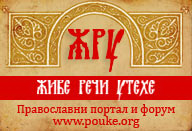Key Words: social teaching, social virtue, orthodox theology, sign of the time, democracy.
Religious education of all the traditional churches and religious communities defers, pursuant to the law of 2001 brought through the education system of the Republic of Serbia to all the classes of elementary and high education (12 years all together) with the volume of one lesson per week. Religious education holds a status of a compulsory subject of a free choice, meaning that pupils are obliged to choose between religious education and the other subject, i.e., civil education. The education committees of traditional churches and religious communities elaborate plans and programs, while catechists, imposed also by these traditional churches and religious communities, conduct the teaching itself. The head of the Committee due to shape plans and programmes for the Orthodox Catechesis, is His Grace bishop Ignatie of Branichevo, professor of Dogmatics at the Orthodox Theology faculty of the University of Belgrade, himself the author of the textbooks for all the classes in elementary and high schools. They are based upon the personalistic and Eucharistic theology and its general aim is to bring pupils into Eucharistic community. Perception solidarity is mentioned nowhere in these textbooks. At the Theology faculty in Belgrade, in the exam of Sociology of Christianity, students are acquainted with this perception, for the first time, in its contemporary, theological meaning through the analysis of the Basics of social teaching of the Catholic Church.
Generally speaking, in the Serbian theology perception of solidarity has not acquired a status of a theological perception with precisely determined connotation. Sometimes we can come across its usage, but only in a general and accustomed understanding. Based on this situation one can ask a wide range of questions: is solidarity Evangelical and thus traditional perception? Should it be conceived as a “sign of the time”, and if yes, why? And last, could internal and external causes be identified as, due to them, solidarity has not as yet obtained theological argument in the Serbian orthodox theology.
Is Solidarity an Evangelical or Traditional Perception?
Solidarity is a new perception with an old contents (Marasovic 2004, 354). Emerged during the French revolution it gained its theological meaning in Germany with a tendency to express a new and original relation between man and society. However, there are authors who conceder this perception as redundant and intrusive, and all that one wish to express by it has already been done (see Matulic 2004, 433-455). The idea of solidarity is of a secular origin and nature, and there are limited possibilities of its Christianization. On the other hand the numerous social documents of the Roman Catholic Church (see Крстић 2010, 87) and at last, its Compendium of the Social Doctrine determine solidarity as a social principle and a moral virtue, solving thus all dilemmas about theological contents of the perception solidarity spreading it into the whole History of Salvation.
Solidarity as a Sign of the Time
Contemporary conditions of living renew and actualize one of the significant characteristics of the Greek polis along with the first Christian communities. It is a renewed discovery of a social life which is, beside all the contradictions, a place for life and hope, after all. To that effect the perception of solidarity implies a human’s higher awareness of the duty towards society in which man found his place. This duty is being accomplished and respected by active participation in the social life and various forms of social acting.
Assumptions of Usage of Solidarity as Theological Perception in the Serbian Orthodox Theology
If we take solidarity as a sign of the time its theological usage then is essentially engaged with society and its constitution where a certain faith community indwells, and in the interaction with this wider community forms its own spirituality with, for each era, different emphasis but always about yet eternal and unchangeable core which is the Christ Himself Who remains the same yesterday, today and tomorrow (see Podgorelac 2010, 1038). With regard to this we can partially comprehend solidarity as a synonym for acting love which has never either been away nor is away from the everyday life of the Orthodox Christians in Serbia. The opposite would be simply inconceivable. Helping our neighbor in any kind of necessity is a Christian imperative and approval of the faith’s authenticity. There is no Christianity nor Christians without a mercy, without efficient love. The frame of expressing efficient love is an immediate contact and encounter. This is, certainly, an essential dimension of mercy but not necessarily the only one. Such context of expressing love corresponds to the plane, traditionally organized societies alien to the civil sector. There is no room within them between the state on the top and individuals with their own communities where the primary, immediate relationships rule on the bottom. Setting up a civil sphere is a characteristic of a complex, fashionable society and democratic way of constitution, at that not everyone, but rather the one that switches increasingly and where it is possible, from elective and intermediate democracy into participating democracy (subsidiary as a principle of a social doctrine, offers that as its aim). The Serbian society does not stand on that point of development. It is, on one hand, identified with the debris of totalitarianism which always produces passive individuals. At the same time, these passive individuals, on the other hand, especially Christians who were additionally marginalized, expressed a defeatist attitude that nothing could be done. An individual is powerless unless the action “from above” takes place, as to the State. The social changes occur not by activity of individuals, freely conjoined around various goals, but exclusively by the state intervention. To such social concept corresponds a self-reclusive spirituality that is rather more appropriate to a monastic life ideal than to a life in a modern world. Although, of course, this type of Christian spirituality is not false, it by all means, is not and cannot be the only one. Discovering the meaning and importance of a social life and a new type of spirituality that should turn around from a closed interior towards the society, is a demand that is evermore being set as a goal before the Orthodox Christians in Serbia. My opinion is that participation in social life based upon the Christian basis and values in near future (implying socially dedicated witnessing but not bare activism) will increasingly become a sign and confirmation of authenticity, or only non-authenticity of their faith and doing in favour of making a social ideal of a solidary society (see Πέτρου 2003, 235). Democratization and democratic social context imply defining and hereon a care about the general good. In such a vital and social experience solidarity itself will gain its full and even theological meaning of an important element of a new Christian spirituality in a democratic social surrounding.
BIBLIOGRAFY
- Marasović Š., „Poreklo i sadržaj pojma solidarnost“, BS 74, 2004, 354
- Matulić T., „Skica teološkog utemeljenja ideje solidarnosti“, BS 74, 2004, 433-455
- Podgorelec F., „Smjernice za duhovnost u demokratskom društvu“, BS 80, 2010, 1038
- Πέτρου Ι., «Ανθρώπινα δικαιώματα και αλληλέγγυα κοινωνία», Πολυπολιτισμικότητα και θρησκευτική ελευθερία, Παρατηρητής, Θες/νικη 2003, 235-244
- Крстић З., „Солидарност као теолошки појам у социјалним документима Римокатоличке цркве“, Саборност IV, Пожаревац 2010, 87

 Abstract: In the basics of social teaching in the Roman-catholic Church, solidarity is one of the four elementary principles of learning. Besides its secular origin, perception solidarity gets a theological meaning in the form of social virtue through many social documents of the Roman-catholic Church. Such understanding becomes a novum in theology and is preserved as a sign of the time of its own kind, and therefore replaces or suppresses traditional and evangelical perceptions by which the active love towards the neighbor has been expressed. Is this also acceptable for the Orthodox theology? The author of this article replies positively to this question with a regard that solidarity should be the value of a new Christian ethos that would correspond with democratically organized society and its qualities.
Abstract: In the basics of social teaching in the Roman-catholic Church, solidarity is one of the four elementary principles of learning. Besides its secular origin, perception solidarity gets a theological meaning in the form of social virtue through many social documents of the Roman-catholic Church. Such understanding becomes a novum in theology and is preserved as a sign of the time of its own kind, and therefore replaces or suppresses traditional and evangelical perceptions by which the active love towards the neighbor has been expressed. Is this also acceptable for the Orthodox theology? The author of this article replies positively to this question with a regard that solidarity should be the value of a new Christian ethos that would correspond with democratically organized society and its qualities.












